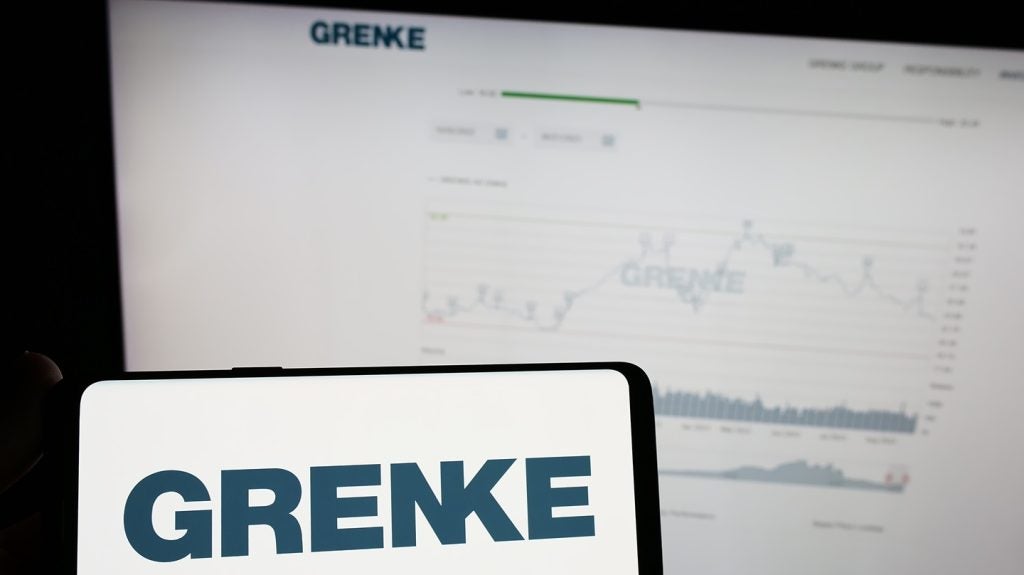
Wider economic sluggishness continues to impact the leasing industry in Switzerland, with little likelihood of significant change over the next 12 months, reports Paul Golden
According to the 2013 annual report of the Swiss Leasing Association (Schweizerischer Leasingverband – SLV), expectations for market growth last year were subdued in the context of generally restrained economic development. Such caution proved to be well-founded, with only a very limited increase in activity compared to the previous 12 months.
Data released by the IMF earlier this year highlighted the challenge facing the country. Its prediction of 2% GDP growth in 2014 was based on demand from the eurozone providing momentum to the Swiss economy after strong domestic demand underpinned modest growth in 2013.
One positive development highlighted by the SLV was the increase in the volume of equipment leasing conducted with public bodies. It describes public sector leasing as an area where there is considerable potential for development given that local government bodies or communes, faced with declining tax revenues, see themselves forced to manage their liquidity very carefully – circumstances that favour using leasing as a means of financing.
A report published by Credit Suisse in early 2013 reported that the public sector accounted for just 2% of total lease activity in 2011.
Consumer leasing followed a modestly positive trend in 2013, but on the other hand slightly fewer vehicles were acquired through fleet leasing in the B2B segment. Taken together, this led to a continuing rather sluggish development of the market, as in the preceding year.
Cornelia Stengel, SLV deputy director says that since the domestic leasing market is cyclical to the overall economy, modest growth is being experienced with rates of expansion lower than in previous years. The association expects the Swiss leasing market to grow by around 1% in 2014 from the 2013 total of CHF26bn (21.65bn).

US Tariffs are shifting - will you react or anticipate?
Don’t let policy changes catch you off guard. Stay proactive with real-time data and expert analysis.
By GlobalDataThe balance of market share between bank-owned, independent and manufacturer-owned lessors has also changed little, with Swiss banks accounting for 44% of the market, slightly ahead of captives with 43%. Bank-related companies and independents control 7% and 6% respectively.
One example of a sector of the lease market that’s performing particularly well is motor vehicles, says Stengel.
"The reasons for this are difficult to determine," she says. "In my opinion, attitudes of private individuals and the industry have changed with respect to vehicles – customers always want the newest possible model and have noticed that leasing in such cases is an attractive alternative to outright purchase. After that there exists a functioning second-hand market in Switzerland, making it easier for leasing companies to finance in this market segment. Finally, Switzerland is a country where prices are high and therefore interesting for producers, which is why manufacturers and importers run so many promotions in Switzerland."
One of the ways in which the SLV contributes to the market’s development is by running a self-regulatory organisation pursuant to the Anti-Money Laundering Act for the supervision of leasing companies. It also arranges ongoing projects and courses such as CAS Leasing (a course leading to a certificate providing detailed knowledge about leasing) and eCode 178, a project to protect the industry against fraud which went live in November 2013.
In Switzerland, leasing companies are liable for unpaid heavy vehicle fees concerning the leased vehicle unless they are able to clarify in time with the Directorate General of Customs (DGC) whether or not the future lessor owes outstanding fees or if, in the event of overdue fees arising later on, they fail to give notice on the leasing contract within 60 days or to ensure that the fees are paid in full.
In order to ensure that queries and notifications concerning these fees are processed faster and more dependably, the DGC introduced an electronic solution for leasing queries under the project name eLL. Several workshops were held with the SLV and the members most affected by this development and the project was implemented on schedule.
According to Christian Piringer, CEO SGEF Alps and SEE, one of the most significant developments in this market over the past 12 months has been the overall reduction of central bank interest rates, which has allowed leasing companies to lower their rates. "Fixed interest rates up to 10 years’ duration seem to be favourable for companies to invest now and bring their technical assets up to date," Piringer says.
He adds that as the new generation of entrepreneurs take over the management of Swiss privately owned companies they are increasingly requesting modern forms of financing such as full-service leasing or operational leases rather than conventional loans. "The idea of using equipment instead of owning it becomes more and more common in Switzerland."
While observing that Société Générale Group has returned to growth and is interested in growing its business in Switzerland, Piringer also accepts that the current uncertainty around market developments in Europe does not support quick investment decisions by customers.
"We promote integrated financing models which allow customers to have one regular payment to cover financing, insurance, service and maintenance and eventually other services," Piringer says. "In doing so we co-operate with leading manufacturers and dealers, often based on international contracts. In the area of high-tech equipment and medical equipment we provide an offer (so far unique) for operational lease for which we are able to guarantee the open residual value."
Looking ahead to the remainder of 2014, Piringer says that based on cautious estimations for GDP growth and market development in Switzerland and ongoing subdued demand on the customer side the company expects the lease market to register a similar performance to 2013.
"In terms of new business, property leasing is currently pretty slow," adds Florian Venosta, CEO AIL Swiss-Austria Leasing. "The national leasing association believes that this is down to the constraint of long-term investments in the wake of the global financial crisis."
Main players
Markus Zueger, head of UBS Leasing (which focuses on leasing of capital goods – typically heavy equipment such as excavators, forklifts or generators – to Swiss corporates) says the main players continue to be the domestic bank-owned lessors, while the number of foreign banks offering lease services remains stable as various players leave/enter the market.
"The market for capital goods is highly dependent on the state of the Swiss economy. As the tertiary sector becomes more and more important in Switzerland, markets such as IT, communication and motor vehicles gain in importance.
He suggests that current historically low interest rates are not favourable for the leasing market "as many companies finance production goods by themselves without using financial instruments".
Zueger says UBS Leasing is optimistic about the future of the capital goods leasing market. Additionally, leasing penetration in the Swiss market is lower than in other European markets, leaving room for further business growth.
The Credit Suisse report valued the leasing market for capital goods at CHF14.5bn, compared to outstanding loans from banks to domestic firms of CHF434bn. It also noted that leasing penetration in Switzerland was below the European average.
Cédric Petitpierre, head of special finance at Bank CIC (Switzerland) identifies three key strands to the Swiss leasing market:
- The large banks (UBS, Credit Suisse) which sell their leasing product through their network of agencies and commercial relationship managers.
- The captive leasing companies (Volvo, Scania Finance).
- The independent lease companies which conclude leases either directly or by means of vendor cooperation.
Petitpierre says: "In my opinion, the leasing market has been impacted by two main factors over the last 12 months. The
first of these is the introduction of the EURO 6 standard for trucks, which led to higher investment in this sector, as well as to competition between the truck manufacturers regarding the introduction date. In Switzerland it’s no longer possible to register any new truck that does not have a EURO 6 motor. This gave a boost to the purchases of new trucks, at least for the manufacturers which succeeded in delivering the new standard soon enough."
The second significant development is the progressive verticalisation of production in the watch industry over the last two years where orders previously given to subcontractors were internalised. Petitpierre continues: "Part of these orders was also given to subcontractors abroad which produce for less cost. Since the big names in the watch industry finance the machine tools themselves (due to very high liquidity levels) the leases in this segment are clearly declining."
According to Petitpierre, no one is truly satisfied with the development of the leasing market in Switzerland. "The stagnation of volumes leads to a run on every deal to fill the pipelines and the impact of this on margins is not very healthy. However, margins can still be held at an interesting level in niche markets and with tailor-made solutions."
When asked whether the Swiss government has taken any direct or indirect action to support the lease finance industry, he observes that since leasing is not regulated under Swiss law, the government does not explicitly take action in the leasing market. "Incentives or supporting action would be taken for the whole financing industry. However, the concerns in this sector are more directed to tax compliance, US claims and anti-money laundering procedures."
Petitpierre accepts that it’s difficult to say whether the market is likely to grow this year compared to 2013.
"The eurozone crisis had an important impact on Swiss industrial production, since more than 80% of our industrial output goes to countries in the eurozone. The Swiss National Bank had to intervene on the exchange rate between the euro and Swiss franc, guaranteeing a minimum rate of CHF1.20 per euro to avoid more serious problems for the Swiss export industry."
The effects of this crisis are still visible in various industrial segments (automotive suppliers, machinery, heavy industry), he continues. "As long as there is no real upward trend in the eurozone, there will not be any major change in the Swiss leasing market. Therefore I would rather tend to say no to the question of whether there will be significant market growth."
However, he also refers to developments in public sector leasing as a positive development, pointing out that the volume of leases concluded by public entities grew 12% last year as a result of budget restrictions making direct investment difficult.
"We’re neither optimistic nor pessimistic about the prospects for the Swiss lease market in 2014," he concludes. "For the reasons outlined we have to wait for the return of economic dynamics. In the meantime we can move on with tailor-made solutions which are still sought-after in the market."







